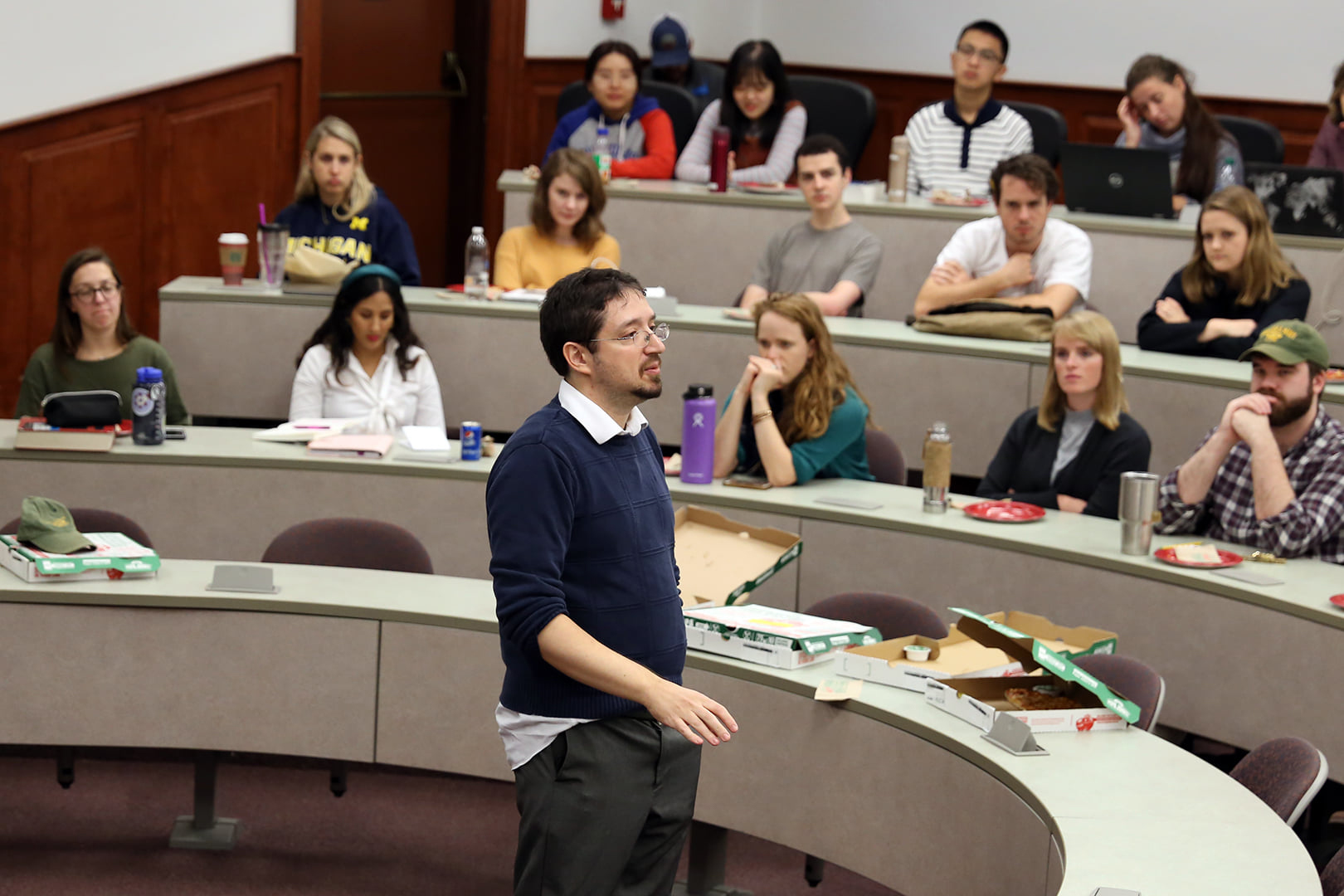Human Security Law Center Hosts Discussion on Mass Atrocity Trials
On Thursday, October 17, the Human Security Law Center welcomed Arthur R. Traldi for a discussion on Mass Atrocity Trials. Traldi, a former trial attorney at the International Criminal Tribunal for the Former Yugoslavia, and a graduate of William & Mary and Georgetown University Law Center, spoke from his extensive experience in international justice and international, criminal, and human rights law.
Before a packed room, Traldi shared a chilling story of events that took place in the Bosnian village of Novoseoci in a municipality known as Sokolac. In late September 1992, a brigade of the Bosnian Serb Army surrounded the village, separated men from women, and executed the men and boys before dumping their bodies into a garbage drop and covering them with rubble from a mosque the brigade had just destroyed.
Traldi said that the question every prosecutor in the center of mass atrocity trials must ask themselves is “How can you prove this terrible incident happened?” From this question stemmed others, including: How do we know this happened? What kinds of evidence can be relied upon in proving this happened? How do we identify the perpetrators? How do we identify who was in charge?
Such a heart-breaking incident fits into a whole body of evidence that is used to develop a case against an accused. For Traldi, that case began in 2012 with the trial of General Ratko Mladic, known to some as the Butcher of Bosnia.
Traldi described this case as the pinnacle of his career, requiring skills that went far beyond trial advocacy to forensics knowledge, trauma-informed interviewing of witnesses, and so much more.
Mass atrocity trials differ from “normal crime” trials due to the sheer magnitude of evidence, data, and witness testimony needed in order to convict the accused of the most heinous crimes known to the world: genocide, crimes against humanity, and war crimes. Traldi described this as a “quantum of evidence” and a “logistical challenge,” dishing out mass numbers of witnesses interviewed, exhibits, and five and a half years of trial work culminating in a 2017 conviction of Mladic for genocide, crimes against humanity and genocide.
Traldi explained that challenges don’t just stop there, as politics and different application of the law by different judges can still lead to acquittals or retrials. He further explained the complexities of trying mass atrocity cases by pitching a Game of Thrones example to the audience, identifying crimes and possible investigative questions and practices with student participants.
The talk concluded with predictions on the state of international law in the near future, which Traldi described as “in flux.” Although he was not sure what the next few years hold, he predicted greater international work being held within domestic courts—a trend already evident across Europe and making its way across the U.S. as two IS fighters are to be tried in the Eastern District of Virginia.
Prior to his work in Yugoslavia, Traldi served at the International Criminal Tribunal for Rwanda; worked as an expert with the OSCE Mission to Bosnia and Herzegovina; was seconded by the State Department to OSCE election observation missions in Albania, Azerbaijan, Georgia and Ukraine; trained prosecutors and judges litigating very serious crimes in a dozen different countries; and clerked for Justice Debra Todd of the Pennsylvania Supreme Court and Judge Arthur Zulick of Monroe County.
About William & Mary Law School
Thomas Jefferson founded William & Mary Law School in 1779 to train leaders for the new nation. Now in its third century, America's oldest law school continues its historic mission of educating citizen lawyers who are prepared both to lead and to serve.